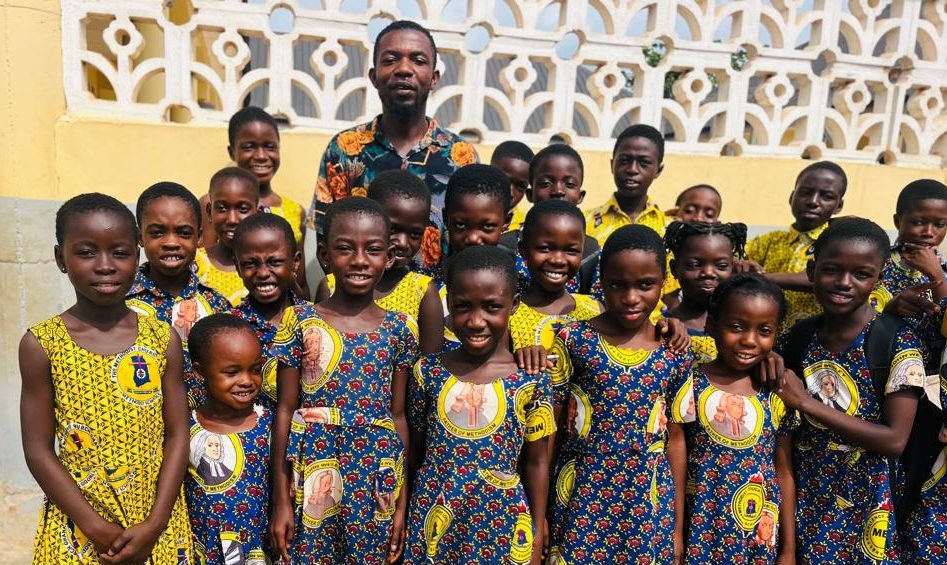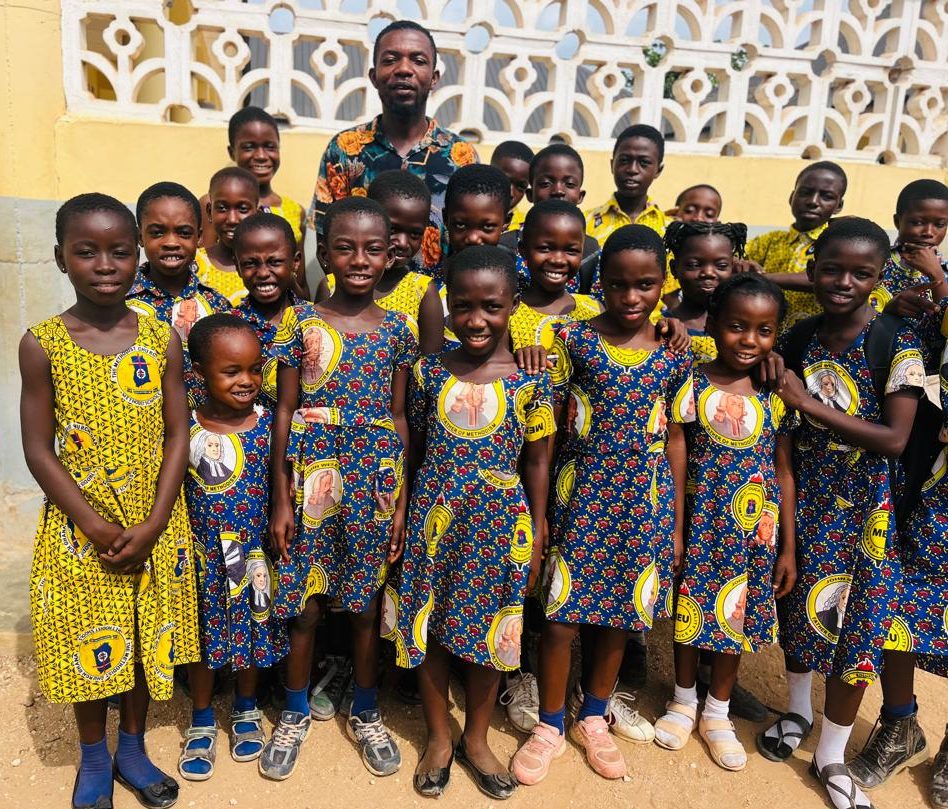In January, DigiLit launched its first monthly challenge of the year, setting the tone for a dynamic and purpose-driven year ahead. The challenge was an invitation for Sparks (learners) to take ownership of their learning, build essential digital skills, and shape the culture of their newly formed DigiLit Clubs. At Aboabo Spot, the challenge became a powerful catalyst for learner engagement, leadership growth, and renewed spot support.
Launching the Club: A Journey Begins
The January DigiLit challenge centred on establishing the foundation of the DigiLit Club. Sparks were tasked with designing a club etiquette poster, creating a “Reading Buddy” system and visual, writing reflective letters to their future selves, and completing the ImpactED baseline survey.
At Aboabo No.4 Spot, the response was energetic. “Our Sparks embraced the challenge with great enthusiasm,” says Jephta Oppong, the Catalyst leading the club. “They poured their creativity into poster designs and deeply reflected on their future goals through letter writing.”
From Struggles to Breakthroughs
The journey wasn’t without hurdles. Sparks initially struggled to understand the challenge, and competing school commitments like sports events made scheduling difficult. Access to materials such as manila cards and markers was another setback. Yet, these obstacles didn’t halt progress, they inspired problem-solving.
“The turning point came after we won the challenge,” Jephta shares. “The headteacher recognised our efforts and encouraged us to submit a materials budget. The school responded by fully restocking our supplies. It was a win beyond the competition, it was a validation of our work and potential.”
Building Confidence and Community
The challenge quickly became a rallying point at Aboabo No.4. The Sparks’ victory ignited curiosity and motivation across the Spot. New learners expressed interest in joining the club, and participation in monthly challenges began to rise. Sparks especially loved the “Letter to My Future Self” activity, which encouraged them to dream big and imagine the impact of their current efforts years down the line. The Reading Buddy system, though initially met with hesitation, eventually blossomed into a model of peer support and shared learning.
Each club session now follows a structured, student-led format, beginning with icebreakers, reflection, and topic introductions led by the club secretary, followed by engaging discussions and hands-on digital literacy activities such as typing tests. The session concludes with a motivational message and closing prayer, both delivered by Sparks themselves, building confidence, leadership, and a strong sense of community ownership.
Catalyst Growth and Vision
For Jephta, the challenge was a personal and professional milestone. “Guiding the Sparks through this challenge enhanced my leadership and mentoring skills. I learned to adapt, communicate clearly, and co-create a club culture that supports learners. Seeing their growth reaffirmed my belief in the power of community-led education.”
His vision for the club is bold yet rooted in purpose: “To create a dynamic space where Sparks are equipped with essential digital skills to thrive and lead in a changing world.”
Looking Ahead
The DigiLit January Challenge was a starting point, but its ripples are ongoing. It revealed the power of structure, encouragement, and intentional challenges in transforming the way learners and leaders engage with digital literacy. It also showcased how a simple challenge, when thoughtfully executed, can awaken enthusiasm, promote innovation, and build a thriving culture of learning.
As EduSpots continues to support Spots through monthly challenges, stories like Aboabo’s remind us of what’s possible when learners are trusted to lead, and when Catalysts like Jephta are equipped to nurture their potential.





